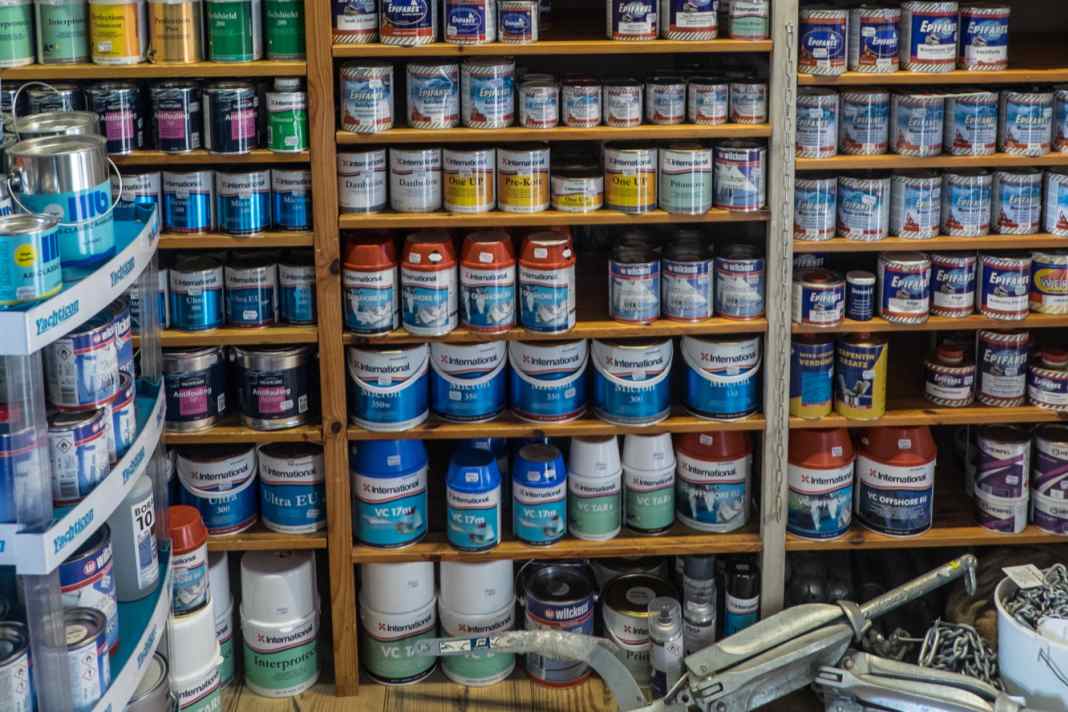Change in legislation: The end is near: buying biocide-containing antifouling is getting complicated!
Hauke Schmidt
· 05.12.2024



The new regulations were announced back in August 2021 in the "Regulation on the reorganisation of national sub-legislative provisions for biocidal products" and include a whole package of measures that make the sale of products containing biocides more difficult.
Background to the new regulations
The critical points are paragraphs 10 to 13, which concern the ban on self-service. Antifouling products for use on watercraft are mentioned there, as well as biocides for the protection of building materials. This is likely to affect Boracol, for example, which is popular with teak deck owners.
Significant changes
- Delivery only by authorised personsThe sale may only be carried out by trained personnel with a certificate of competence extended to biocides.
- Obligation of the buyer to provide evidenceThe buyer must prove that he is authorised and able to use the product properly.
- Mandatory submission meetingThis interview must include the following content:
- Preventive measures to control pests and possible lower-risk alternatives
- Correct use of the product according to the instructions
- Risks and their minimisation
- Important precautions for safe use
- Correct storage and disposal of the product
These measures apply both in bricks-and-mortar retail and online, although in online retail the sales call should be made by telephone or video chat and, according to the wording, must also be verified by the retailer. This means that it will hardly be possible to simply add the antifouling to the shopping basket on a Sunday evening and paint it two days later.
Challenges during implementation
The main problem with the regulation is that the wording reveals very little about its implementation. In addition, the responsible authorities also appear to be in the dark. This poses enormous challenges for retailers. "I sent the Bremen Trade Supervisory Office a catalogue of 20 questions at the beginning of the year, of which just five were answered," says SVB Managing Director Thomas Stamann.
Proof of requirements
One sticking point, for example, is the proof of need, where the Bremen Trade Supervisory Office suggests presenting a pleasure craft licence. However, the possession of a licence does not qualify the holder to process biocides, nor is it suitable as proof for the maintenance of a yacht, especially as no licence is required up to a motorisation of 15 HP. It is therefore possible to need antifouling even without a licence.
Delivery interview
One problem that is particularly relevant in online retail is the mandatory sales dialogue. Although its content is outlined, its implementation is not. "On a long spring weekend, our online shop receives around 3,500 orders, a third of which contain antifouling products. So we would have to make more than 1,000 phone calls or video chats on Monday. That's completely unthinkable," says Stamann. "The authorities rejected the use of an AI-based avatar, citing the need for the avatar to undergo specialist training, so we are now going to make a kind of instructional video that every customer has to watch when making a purchase," Stamann continues. The risk here is that it is not clear whether the solution fulfils the regulation and, in case of doubt, will have to be clarified later in court.
Online purchase only during opening hours
Bauhaus, one of the largest area suppliers with a good 50 Nautic specialist centres and an online shop, is also struggling with similar problems. The shops are already being remodelled so that the antifouling cans are in a locked display case, and the employees have also been trained accordingly. However, the question of proof of authorisation has not yet been conclusively clarified. In addition, the online purchase of biocidal products will only be possible during opening hours, as the dispensing interview is to be conducted via video chat with an employee with a certificate of competence.
Fittings manufacturer and antifouling wholesaler Sprenger also reports great uncertainty among its customers. Not every shop has implemented the necessary training and restructuring in sales yet.
Hoarding instead of hope
It is unlikely that customers will be faced with empty shelves for antifouling products from 1 January. Demand and trade volumes are so high that retailers are doing everything they can to continue selling products containing biocides. However, a concentration on the specialised trade is already foreseeable. Online giant Amazon, for example, withdrew from the sale of biocide-containing antifoulings at the beginning of the year. Suppliers such as Compass and SVB are propagating hoarding purchases, i.e. customers should buy enough paint to last them for the next two to three years before the regulation comes into force. During this transitional period, the new sales channels should have become established. In addition, the range of biocide-free anti-fouling systems is constantly increasing and there is hope that they will become so effective that they will also be a good alternative in saltwater areas. They already are for inland areas.

